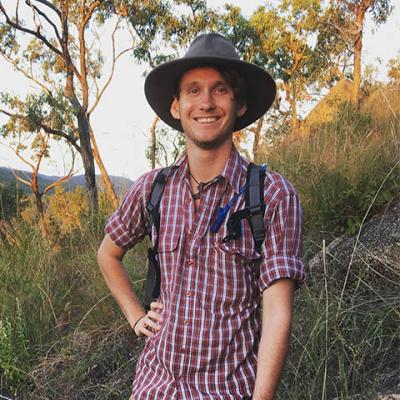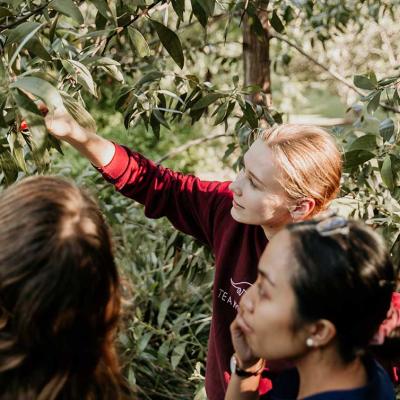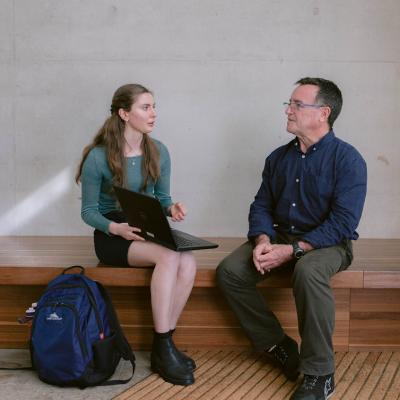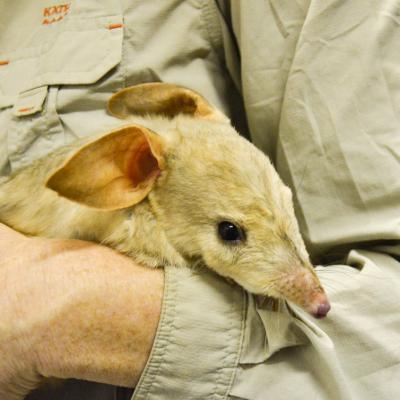A degree in environmental science opens doors to many important, exciting, and rewarding environmental science careers.
As natural environments and the species they support continue to face the impacts of climate change and habitat destruction, there’s an increasing need for environmental scientists with a passion for discovering and developing innovative, future-focused solutions.
Environmental science careers encompass a wide range of interests and specialisations. From fieldwork to office-based work or laboratory research, you could find yourself investing your knowledge and skills into a variety of projects making a big impact on a local and even global scale.
To give you a better idea of the environmental science jobs available to graduates, we’ve hand-picked a few to explore in more detail. So, if you’re wondering 'what do environmental scientists do?' and you're interested in cultivating a career in a high-demand industry with plenty of opportunities, be sure to keep reading.
Conservation officer
Conservation officer is one of the most popular jobs in environmental science, and it's easy to see why when you witness how passionate these professionals are about their roles. Conservation officers are responsible for developing and implementing programs and regulations for the purpose of protecting wildlife and natural resources. Typically, you’ll find conservation roles within government organisations, conservation groups, wildlife trusts, local authorities, and some charities.
When it comes to environmental science jobs, the term 'conservation officer' can encompass a wide range of roles and is sometimes also referred to as a 'wildlife officer'.
What do conservation officers do?
Conservation officer duties include:
- conducting field studies to evaluate habitat, wildlife and fisheries needs
- enforcing specific laws and regulations to conserve and protect wildlife
- conducting environmental impact assessments for a wide range of development projects
- proposing solutions to address and mitigate negative environmental impacts, based on findings
- studying and analysing pollution, atmospheric conditions and ecology, as well as mineral, soil, and water samples.
Conservation officer skills
To become a conservation officer, you’ll need to have:
- a keen interest and passion for the conservation of wildlife, their habitats, and natural environments as a whole
- strong scientific knowledge in the areas of biology, law and government, and geography
- the ability to listen and communicate well with others
- strong problem-solving skills
- the ability to comprehend large amounts of complex information/data and synthesise it into readable research papers.

Information sourced from Talent, Your Career and Jobs and Skills Australia.
Toxicology consultant
The role of a toxicologist is to study the effects of foreign, chemical, or biological substances within living organisms and environments. A toxicologist observes the interactions between substances and identifies any potential threats to health and safety they may pose. Typically, toxicologist roles will focus on conducting clinical studies to make sure labs, clinical professionals and others use and dispose of chemicals safely.
Toxicology consultant jobs are an example of environmental science careers that can also be found in other fields, including teaching, research, forensic science, and pharmaceuticals.
What do toxicologists do?
A toxicologist's responsibilities include:
- planning controlled experiments to better understand how substances function within living organisms
- interpreting and recording toxin data to expand upon existing knowledge around toxins and how they behave
- conducting research to expand and strengthen scientific knowledge around toxins and their effects
- undertaking fieldwork to monitor and examine how ecosystems have been affected by contaminants.
Toxicologist skills
Environmental toxicology careers require the following skills:
- an in-depth knowledge and understanding of chemistry, biology and anatomy
- a passion for maintaining the health of people, animals, and the wider environment
- strong critical thinking skills to assess complex situations, identify potential issues and propose solutions
- strong collaboration and teamwork skills to work alongside colleagues, stakeholders, and the wider community to share information and coordinate experiments and procedures
- organisation skills to maintain a clean and efficient workspace.
Discover some of the ground-breaking research being done by environmental researchers at UQ.
Water quality specialist
Environmental water quality specialists take samples from bodies of water and test them to ensure they reach minimum safety standards for public and environmental health. They understand the properties of water and any pollutants that might damage an ecosystem, such as human-caused pollutants or harmful natural elements.
Water quality specialists can specialise in the areas of drinking water, groundwater, and surface water (such as rivers, lakes and estuaries). Environmental water quality jobs can be found in local, state and federal government agencies, privately owned scientific and technical consulting services, engineering services, and more.
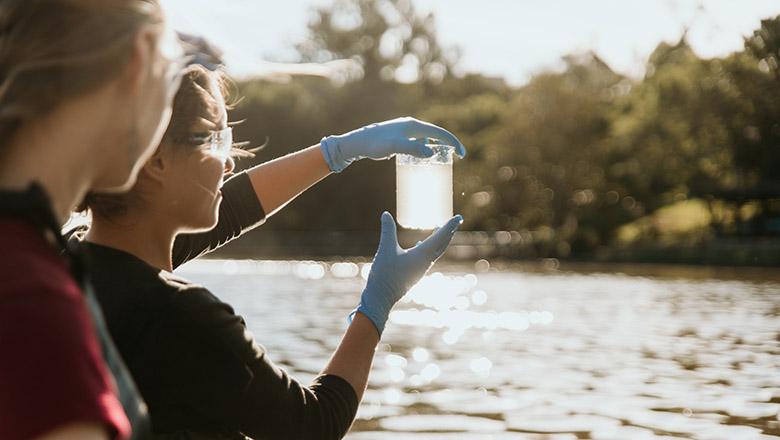
What does a water quality specialist do?
In this role, you can expect to:
- perform tests to ensure waterways meet safety standards and operations equipment and tools meet quality assurance standards
- collect data from your tests and experiments, and maintain records, logs and reports
- construct, maintain, inspect and/or repair facilities, water mains and lines, water system connections, and meters
- remain aware of occupational hazards and follow safety precaution procedures.
Water quality specialist skills
To become a water quality specialist, you’ll need the following skills:
- strong scientific research and analysis skills
- the ability to work within a laboratory setting
- strong written and verbal communication skills
- interpersonal skills for the many internal and external stakeholders, colleagues and clients you’ll be working alongside in this role.
Meet Thomas, a threatened species officer at Phillip Island Nature Parks
Equipped with a bachelor's degree in environmental science from UQ and a passion for protecting and embracing the great outdoors, Thomas knew that a career in conservation was his calling.
Thomas is a threatened species officer with Phillip Island Nature Parks, and his role is to coordinate the nature park’s threatened species plan.
“I conduct fieldwork, collect data, and maintain databases associated with existing research programs on threatened species such as Eastern Barred Bandicoots and Hooded Plovers,” Thomas says.
“I also prepare for the future reintroduction of other threatened species, including Bush Stone-curlews, to Phillip Island, on the back of our successful fox eradication program.”
*The Bachelor of Environmental Science has since been discontinued. You can now study environmental science as a major within the Bachelor of Science or Bachelor of Advanced Science (Honours).
Thomas thanks the practical and theoretical aspects of his studies in environmental science for preparing him with the skills required to be successful in his current role.
“I was lucky enough to volunteer with the Idalia Recovery Organisation of Students and took many trips to Idalia National Park, assisting with fauna surveys, park maintenance, and mapping,” he says.
“This volunteering experience facilitated by UQ was what really inspired me to continue with my studies into my honours year and pursue a career in conservation.”
“I was also part of UQ’s environmental science society, where I had the opportunity to meet and learn from some amazing people with a shared passion for creating a sustainable, thriving environment now and into the future.”
With this experience in mind, Thomas’ advice for anyone considering studying environmental science at UQ is simple: do it.
“UQ is a fantastic institution where your passion and knowledge can thrive and develop,” he says.
“Also, be sure to volunteer as much as possible because there is no substitute for real, on-the-ground experience in the field of conservation – and it’s a bunch of fun!”
Find out more about Thomas’ exciting career as a threatened species officer.
GIS analyst
Geographic Information Systems (GIS) use technology and database analysis to simplify and explain spatial patterns and create reports, including static or interactive maps. Most commonly, you’ll find GIS analyst positions in environmental science within local, state and federal governments, but you’ll also find roles with consulting agencies and engineering companies, or with organisations that need to plan delivery routes or map geographic factors for planning locations.
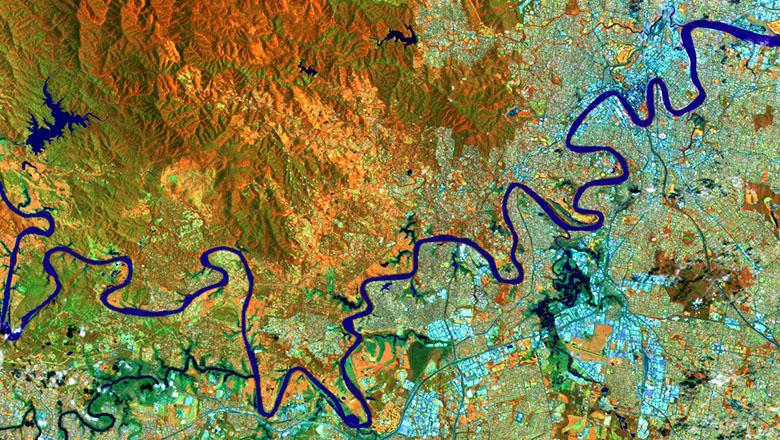
What do GIS analysts do?
GIS analyst responsibilities include:
- collecting field data using GPS or other equipment
- creating highly customised maps
- geo-referencing digital maps to match real locations using surveying, GPS, and other relevant data
- meeting with stakeholders to identify user requirements for GIS applications
- working with customers and internal stakeholders to plan, design, develop and test the implementation of GIS applications
- researching original documents to resolve any missing or conflicting data and correct problems with data using spatial and logical analysis.
GIS analyst skills
GIS analysts develop the following skills:
- a strong handle of mathematical and statistical analysis
- proficiency with a range of programming languages such as SQL and Python, as well as front-end design languages such as HTML, CSS and Javascript
- experience with GPS measuring tools and mapping software
- knowledge in cartography and geography
- creative thinking and the ability to think outside of the box to solve problems
- excellent written and verbal communication skills.
Want to know more about the types of careers you can pursue with a university degree in science?
This article has been updated since its original publish date to ensure accuracy of information. The views, opinions and details of the people featured in this article are true as of 18 March 2022.


